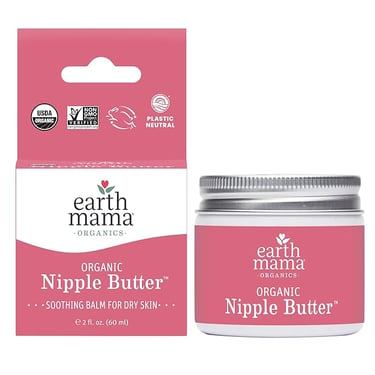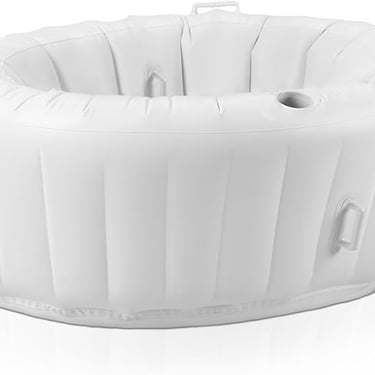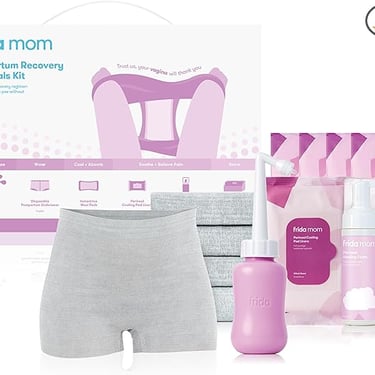Choosing Midwife-Assisted Home Birth
Explore the transformative journey of motherhood and the decision-making process behind choosing a midwife-assisted home birth. Discover the joys, fears, and benefits of opting for a home birth over a traditional hospital setting.
PARENTING
1/30/20254 min read
Scroll to the end to see a list of my essentials for home birth


As a mom, the journey into motherhood is one of the most transformative experiences of my life. It's filled with joy, anticipation, and yes, a little fear too. When it came to planning the birth of my child, I found myself at a crossroads: Should I opt for a midwife-assisted home birth or a traditional hospital birth? After much contemplation and research, I chose the former, and I couldn’t be happier with my decision.
Here, I want to share the benefits of midwife-assisted home births compared to hospital births based on my personal experience.
1. Comfort of Home - One of the most significant advantages of a home birth is the comfort of being in your own space. There’s something incredibly soothing about laboring in an environment where you feel at ease. I was surrounded by familiar comforts—my own bed, soft lighting, and even my favorite music playing in the background. Unlike the clinical feel of a hospital, my home was a space where I could fully relax and focus on the experience of bringing my baby into the world.
2. Personalized Care - Midwives are specially trained to provide personalized, holistic care during pregnancy, labor, and postpartum. My midwife took the time to build a genuine relationship with me throughout my pregnancy, which made all the difference. We discussed my fears, expectations, and birth plan in detail. This intimate care meant that when the time came, I felt completely supported and understood throughout the labor process, unlike in a hospital where the practitioners might rotate and the care can feel impersonal.
3. Less Medical Intervention - In a hospital setting, the risk of medical interventions—such as unnecessary inductions, epidurals, or cesarean sections—can be higher due to clinical protocols and time limitations. With my midwife's guidance, I was able to avoid these interventions. We trusted my body and allowed labor to progress naturally. This choice not only made the labor process smoother but also contributed to a healthier outcome for both my baby and me.
4. Continuity of Care - Having consistent care throughout my pregnancy was invaluable. My midwife was there for every prenatal visit, and when labor began, she was the one who showed up at my doorstep. In stark contrast, many hospitals assign multiple physicians or residents throughout the labor process, which can result in a fragmented experience. Knowing I had someone I already trusted by my side made a profound difference in how I handled the challenges that arose during labor.
5. Empowerment Through Education - Midwifery places a strong emphasis on empowerment and education. My midwife provided me with various resources, birth classes, and information about the birthing process, always encouraging me to ask questions and voice my concerns. This level of education helped me advocate for myself during labor and feel more in control. I emerged not just as a new mother, but also as an informed advocate for my health and my child’s well-being.
6. Family-Centered Environment - A home birth allows for a more family-centered environment. My family was able to be present, supporting me in ways that felt right for all of us. This inclusivity created a warm atmosphere where my partner could play a more active role in supporting me compared to what I had witnessed during hospital births where many partners felt pushed aside.
7. Postpartum Comfort - After the birth, I can’t express how wonderful it was to be home with my new baby. My midwife conducted postpartum visits in the comfort of my living room, allowing me to recover in my own space. She offered vital support with breastfeeding and newborn care while also ensuring I was physically and emotionally well. This kind of postpartum care is often lacking in hospitals due to time constraints.
8. A Quieter Atmosphere - Labor and delivery in the hospital can be hectic, with bright lights, machines beeping, and constant monitoring. This can be overwhelming, especially when you are focusing on bringing new life into the world. At home, I could control the environment—dim lights, quietness, and the absence of unnecessary medical noise allowed me to concentrate fully on my body’s natural rhythms.
9. Lower Risk of Infection- Hospitals can be breeding grounds for infections. Being in a familiar, clean environment with fewer people reduces the risk of exposure to viruses and bacteria. I felt reassured knowing that we were taking precautions to keep ourselves safe while welcoming our newborn into the world.
10. Building a Supportive Community - Choosing a midwife often leads you to a community of other like-minded moms and families. Support groups, events, and shared experiences often grow out of this choice. I appreciated the opportunity to connect with other mothers who had similar philosophies about childbirth, parenting, and health. Meeting regularly with this community has provided support and friendship that I deeply value.
Conclusion - Every mother’s birthing journey is unique, and it’s essential to choose an approach that feels right for you. For me, the experience of a midwife-assisted home birth was incredibly rewarding. It empowered me, provided a level of care that was both personal and compassionate, and allowed me to bring my child into the world surrounded by love and comfort. I encourage any expectant mother considering her options to weigh the benefits of midwife-assisted home birth against hospital births—you might just find a path that resonates deeply with your values and hopes for your family.








HOME BIRTH ESSENTIALS
As an Amazon associate i earn from qualifying purchases
© 2025. All rights reserved.


